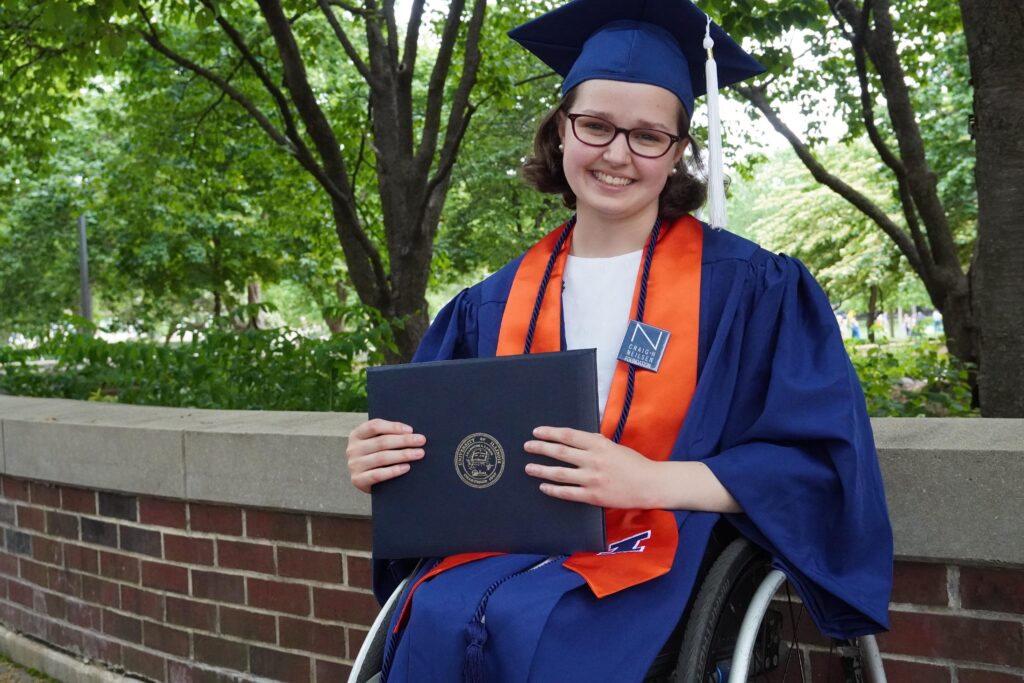
The Neilsen Scholarship Program (NSP) was built on values and ideals that were important to our Founder, Craig H. Neilsen. During his lifetime, Craig began assisting students living with spinal cord injury (SCI) who had a desire to attend college but may not have had the means to pay for tuition. He also wanted to help those students who struggled to cover the expenses associated with adaptive technology, personal care attendants, or other things they needed to help remove the barriers to a quality of life on campus.
When the NSP was launched, we had to develop a creative way to build support for students because the Neilsen Foundation does not make grants to individuals. The solution was to create partnerships with academic institutions that would identify and provide support to students with SCI on their campuses. These grants help underwrite the cost of tuition and fees, as well as providing supplemental support to offset other costly expenses related to living away from home. And, because attending classes might also include additional barriers for students with SCI, this support could include the personal care attendants and adaptive technology needed to fully participate.
To date, we have helped 273 students with SCI pursue their educational goals. Many of them have been inspired to take what the scholarship has given them and give back—creating their own ways of helping others. In that sense, the NSP has become a program that goes well beyond the Foundation and the schools we support.
But none of this would be possible without our partnership with the 17 academic institutions we now work with, including coordination between Disability Services and Financial Aid staff. To encourage discussion and shared planning, Neilsen Foundation staff host webinars that help everyone involved understand the needs of new generations of students with SCI. The schools have been willing to share information about what they’ve been able to do on their campus with other NSP partners and learning from each other’s experiences facilitates the development of practices that most benefit the students. This helps make a college education more accessible—not just in a physical sense—and benefits all students with a disability on the campus by enriching the institutional culture.
Normalizing interactions between able-bodied students and their peers with SCI in the classroom and around campus helps to lessen stigma about disability and boost inclusivity. Participating in adaptive athletics programs also helps students with SCI push their limits, highlight their abilities, and build their sense of school spirit. Many NSP graduates have raved about their experiences as college athletes, with some graduates having moved on to coaching positions to help others achieve an athletic dream. Students enjoyed campus life with the ability to focus on their education without the added financial burden. The NSP gave them all the confidence they needed to follow their educational goals.
To highlight what the students are doing post-graduation and acknowledge their accomplishments, last year we created a Graduates page on the Neilsen Foundation website. We asked them to share a memory of their time in college. Many are thriving, employed in their field of interest, and often striving to make a difference—just like Craig did during his life. One graduate is hoping to establish a scholarship program to help others struggling with the costs of college, while another has returned to the University of Alabama at Tuscaloosa to serve as a coach for the wheelchair tennis team. We are proud that our scholarship program and the institutional partners who help steward it have served as an inspiration for so many brilliant young minds.